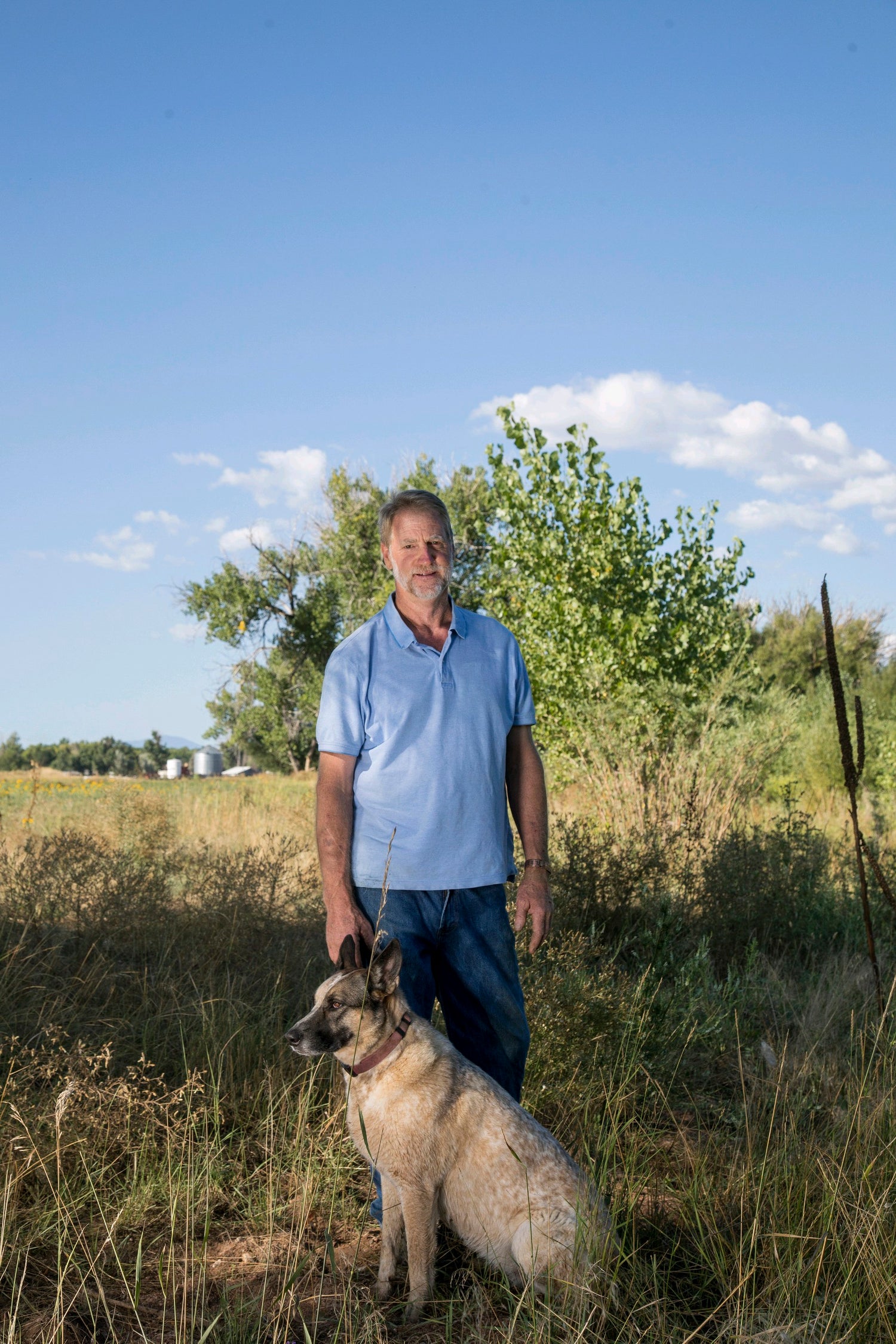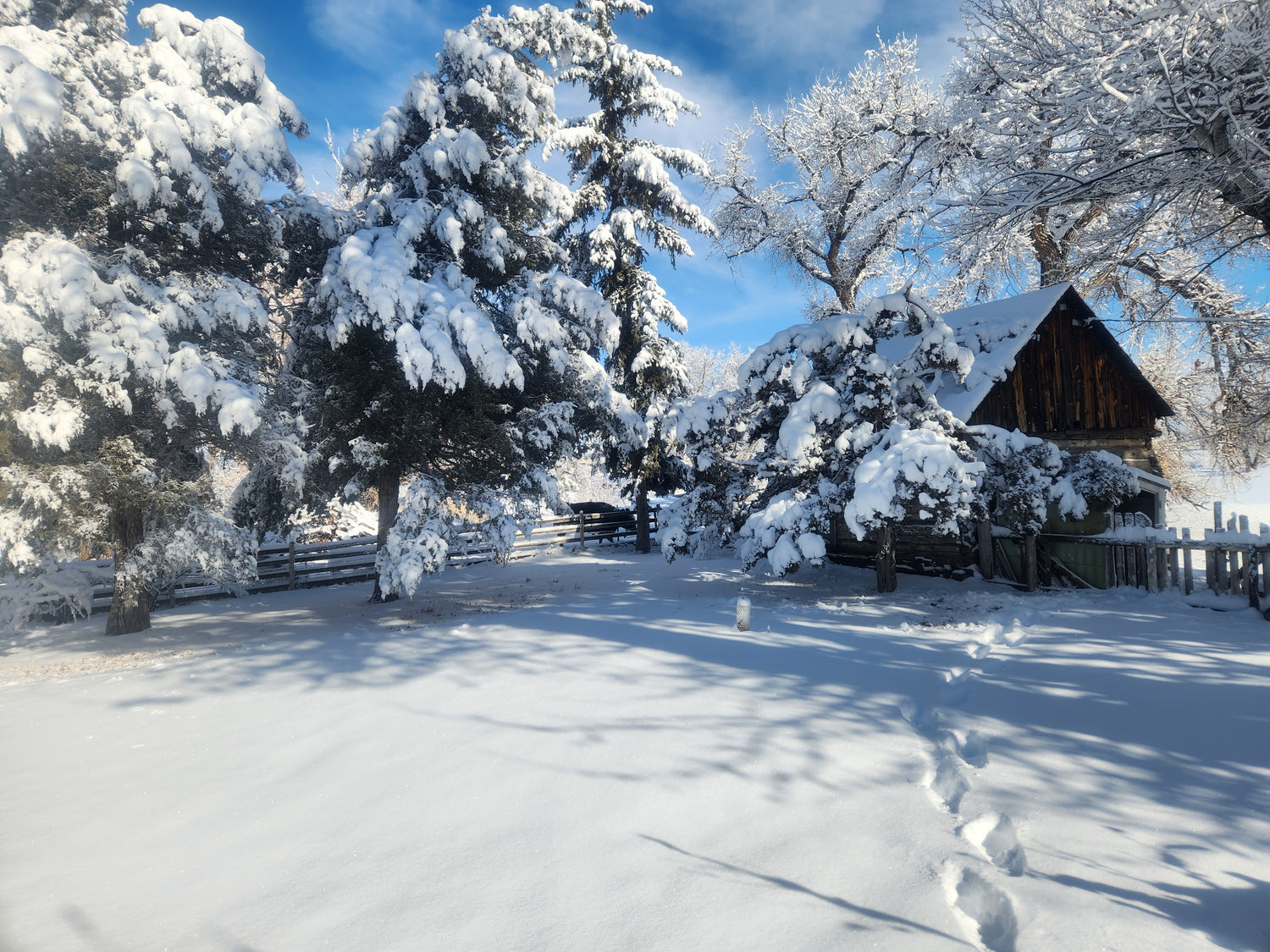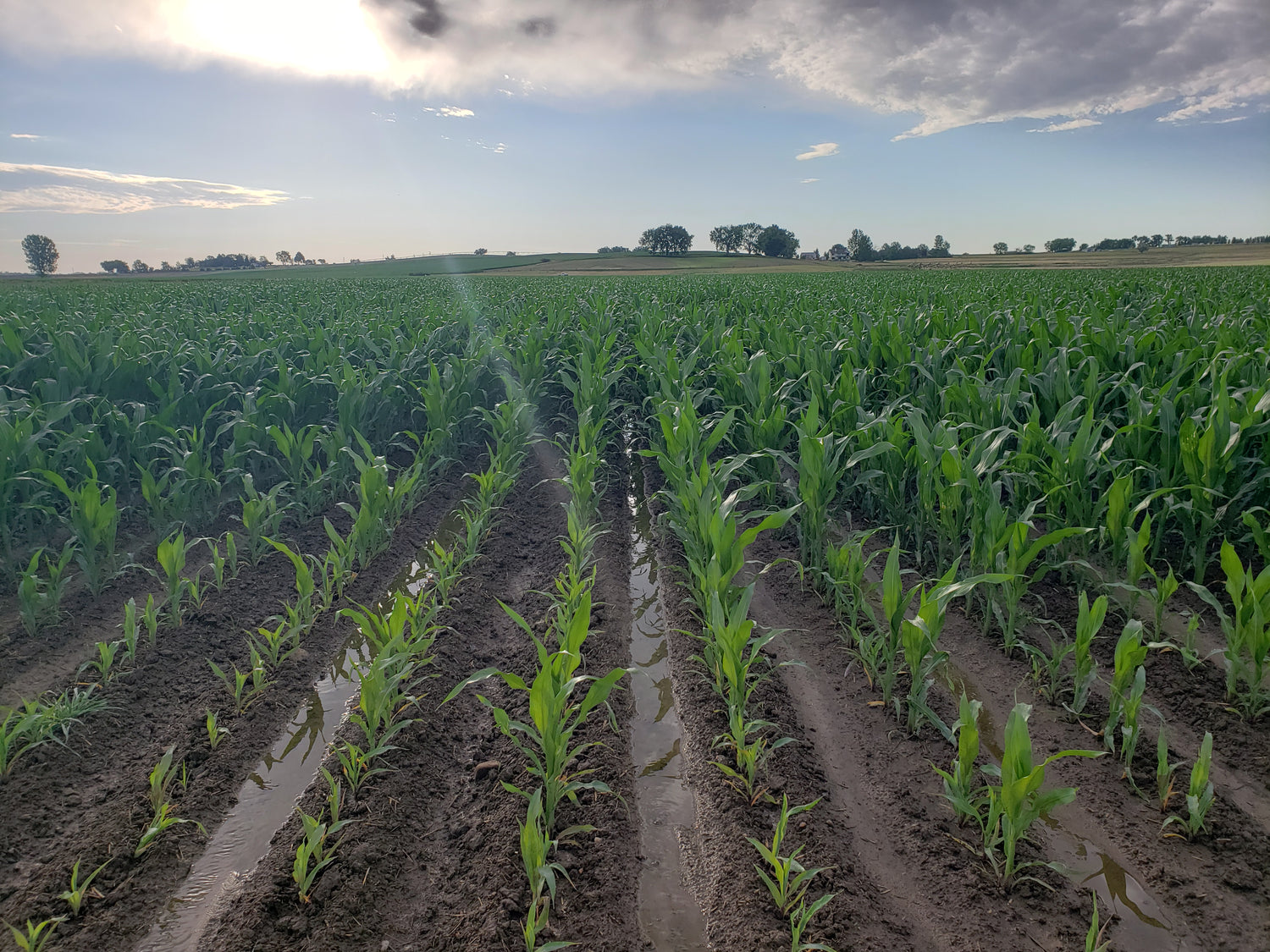Our Story
Los Rios Farm is a family farm along the Little Thompson River in Berthoud, Colorado.

The family has quite a history of aspiration, diligence and struggle. The family immigrated to the United States from Poland in the late 1880s. Arriving in New York by boat, they learned of the possibility of owning land and moved to Eastern Nebraska. Through the first World War, the Depression and the Dust Bowl, farming was difficult and most of the children found work outside of the farm to be more appealing. However, the call of the soil was still in their hearts and souls.
Edward and Irene met during World War II at a war production facility. A year later Edward was called to duty in Virginia and they decided to get married. After the war, they returned to a small Nebraska town where they embarked into a hardware business. Times being difficult in a small town, they followed other siblings to Colorado where jobs were abundant and opportunity again showed. The call of the farm and open spaces seemed more appealing than the “rat race” of the big city. After having the last of 3 children, they moved north to farms near Mead and Berthoud, Colorado, making the main farm along the Little Thompson River the home place in January of 1971.

The allure of this property was the Little Thompson River which ran the length of the property. With 40 head of mother cows, the farm was utilized for pasture and hay. As the years progressed, the farm produced Coors barley, silage corn, pinto beans, sugar beets with vegetable crops thrown in the rotation including onions, pickle cucumbers, potatoes and sweet corn. A neighbor approached the family requesting to cultivate the upper portion of the farm to increase his beet acreage. Timing was appropriate as Edward's health was deteriorating. The cows were sold and Larry (the middle child who lived nearby) supervised the farm with help from a neighbor. Edward died in 2010.
After a very dry summer in 2013, a slow-moving low-pressure system settled and catastrophic flooding occurred along Colorado's Front Range. It began raining on September 11 and continued for three straight days. More than 17 inches of rain fell (our YEARLY average is 15 inches). The river flooded and caused severe damage to trees and the river infrastructure. Buildings on the farm were affected by rain only pushing them to need heavy maintenance. The family had their work cut out for them.

Irene’s health began to deteriorate which required that Larry return to the homestead to help care for his mother as well as start the tedious process of cleaning and repairing the river and infrastructure. Three long years of working to acquire grants and assistance, contractors were hired to complete the work which took about three more years to complete. Irene passed and Larry continued to work and manage the land. During reconstruction, Larry's time was also spent learning the practices of Regenerative Agriculture. In the Fall of 2019, cattle were reintroduced to support the practices. A center pivot irrigation system was put in place in 2021. The power project for this pivot is currently underway to be 100% renewable energy by the Summer of 2022. This includes solar and a micro hydro electric generation system to operate the pump and sprinkler.
Even though drought conditions have been a massive challenge, the goal is still to utilize cover crops to keep a growing root on the soil as much as possible. The use of cattle and pasture hogs will be part of the process to utilize those crops to feed the animals, and in some cases the animals to terminate the crops before another crop is planted. This is helping to reduce or eliminate tillage and greatly reduce the use of chemicals and fertilizers while retaining the crop yields to which we have grown accustomed.
Current production for Los Rios Farm is cattle, tomatoes, seasonal hogs, forage wheat, grass and alfalfa hay, with buckwheat contracted and possibly some forage sorghum. Who can forget fresh eggs and of course our large personal garden?! As we look at future enterprises, expanding to roasting chickens is a consideration. Stay tuned, there's so much more in store for Los Rios Farm..
